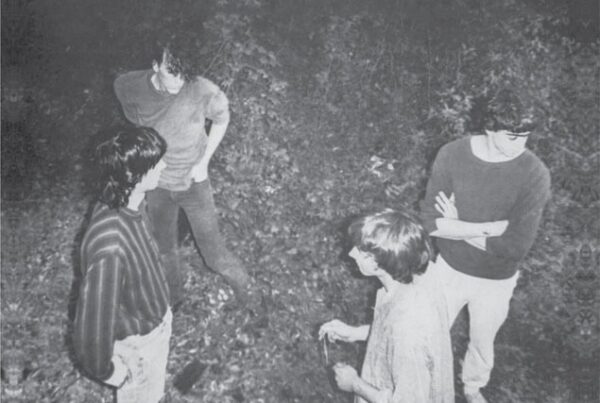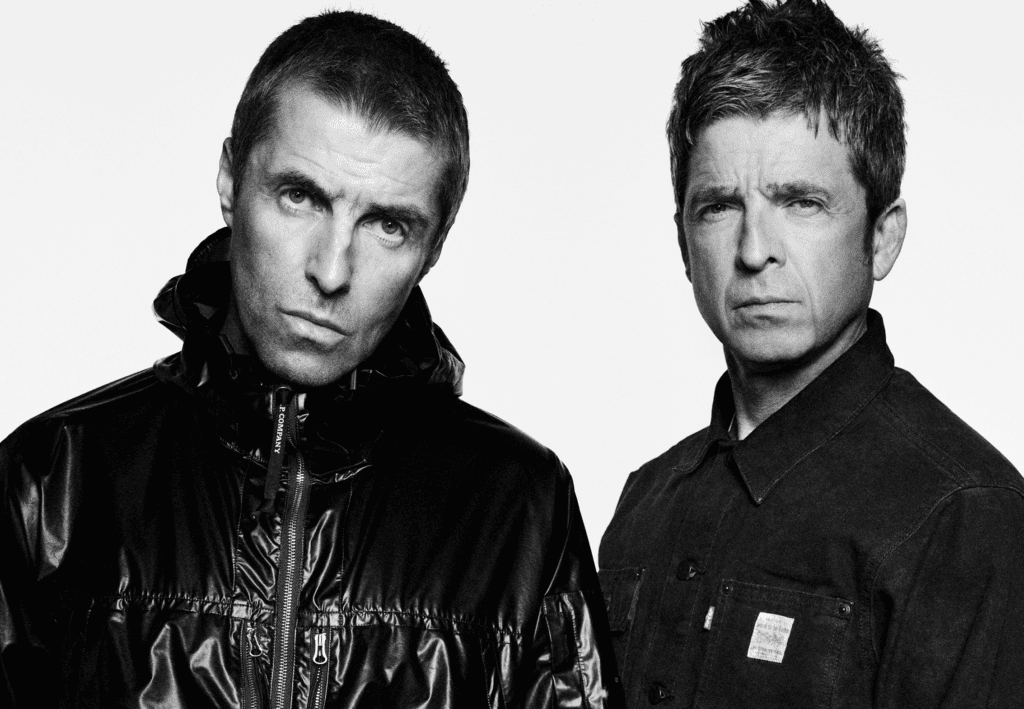A few weeks ago, Dom sat down with modern rock guru and industry veteran Chris Catalyst to find out more about the many projects Chris is involved in, his career and personal development, and his new solo album Kaleidoscopes.

Chris is part of a number of projects including The Sisters of Mercy, Eureka Machines, The Scaramanga Six, and AntiProduct as well as having done stints with the likes of Ugly Kid Joe, Ginger Wildheart, Mariachi El Bronx, and Terrorvision. Though, time away from the live music scene and the normality of the industry has brought Chris Catalyst back to focus on his own adventures.
“I’ve found my feet a bit more, I think it’s the best thing I’ve done. I do find myself saying that pretty much every time but that’s just because you always want to progress as an artist. You always want to challenge yourself and keep coming up with good stuff. I really feel like I have done on this one.”
Chris’ confidence with this new record and his prominent self-belief were both positively apparent things during this conversation. As is the case with many of us, the past 12 months have given us as individuals a lot of time to reflect. Chris has taken this time to realise the worth and conviction of his own talents and the impact he has had on the projects he has been a part of. This led him to conduct his Quaran-Tour in March 2020 releasing The Very Best of Quaran-Tour in January 2021. Through Chris’ work and the online streams that contributed to that album, he has raised over £12,000 for charity.
“The online gigs were a total boost for me both on a professional level and a personal level, it kinda kept me going. I was able to raise a load of money for charity and that was a really good and really fulfilling thing because one of the worst things about lockdown, which is easy to forget, is that, for a lot of people especially in the creative and touring industries, it removed our purpose. So, the idea of doing an online gig at first was a bit strange but I quickly adapted.”
It is online live music and gig experiences like this that have kept the industry afloat throughout this pandemic and changed the way people consume concerts. More than anything, they lifted spirits and raised morale for those who were struggling. Having all this time at home to reflect can be a damaging prospect for some people but Chris was confidently insistent on the acceptance of one’s self. Especially in the context of a musician’s career and finding your place in the industry.
“One of the ways you learn who you are is just by messing about, by just playing games, through pretending and that’s how you can find out who you are. I think as a musician or an artist, you start off by aping your idols, whoever they might be. Then gradually you do realise that the best option is just finding your own feet and your own niche.”
Accepting yourself is known to be one of the most challenging parts of some people’s lives and Chris believes that once you’ve achieved that and found your niche as a musician, it influences the way your career maps out. “I think that also ends up shaping how you define success.” Some musicians find this niche easily and some don’t but when breaking into the industry there are always those who want everything. Chris wanted to really emphasise the concept of finding your own success. “Success for me now is just getting to do the things I want to do.” He’s made a life for himself through being involved in multiple different roles in the industry and multiple different projects with various individuals. “There were times where I wanted an expensive car or a fancy guitar but now I’m making the music I want to make and enough people buy it that I can keep doing it. It’s about keeping it sustainable.”
Dom [Smith – interviewer] was very much on board with Chris’ principle of realism in the industry. “This is one of my favourite chats I’ve done in ages because I love the way you think about stuff.” Chris has a very grounded attitude. He doesn’t preach negativity but instead speaks honestly. The music industry is very cut-throat, no matter what role you go into, and being able to accept that before you break into the industry is key. Sometimes, though, Chris’ blunt delivery is what you need to hear. “Just don’t be a prick haha. That’s the main one, I’ve made a career out of not really being a prick. Be an actual reasonable person to be around.” That persistence and honesty is something that budding musicians need to come to terms with. It’s not constant glitz and glamour in the industry, no matter what level you’re at, there are bitter truths, but Chris had some useful tips for those wanting to make a career for themselves in this world.
“You just have to be indefatigably continuous and never stop. There are plenty of guitarists out there that could play me under the table but for whatever reason they stopped. As a touring musician, the last thing that the management wants is someone else that they’ve gotta manage. The second thing I’d say is that I always make sure that I do my homework. So I turn up on day one knowing, more or less, what it is that I’ve got to do. Another part of it is learning when to blag and when to go ‘can you explain what you’re talking about now’. If you ask, then they’ll tell you. A level of respect for other people, especially on tour [is key].”
It’s from this point onwards that you can start to form your own idea of success and work out what the right path is for you in your music career. Chris talks a lot about finding your own idea of success and learning to combat other people’s opinions on your idea of success. He talked about the little things in life and finding happiness in them so you can be content in yourself and not compare yourself to others. Especially, not letting old friends of yours tarnish your success too.
“I’ve got mates from when I was a kid who ask me how my music’s going and, because they’ve not heard me on the radio and I’ve not headlined Glastonbury, they still perceive it as a little bit of a game and that one day I’ll grow up and get a real job. I didn’t really know that I wanted this life but now that I’ve got it, I’m like, that’s what I’ve always wanted. So when old mates are a bit patronising, that’s fine but what’s success if it’s not just getting to do what you want to do all the time.
This version of success that Chris has achieved has not come about through pure luck. He’s been a part of a range of projects including his own solo stuff, The Sisters of Mercy, and Eureka Machines. However, it’s not just performing and writing as a part of these projects that has helped him get to where he is now. Chris worked behind the scenes and acted as a session musician for other artists amongst a host of other things. He was very assured about the fact that you have to have your eggs in countless amounts of baskets to be able to make headway in any area of the industry and to keep yourself busy. If you’re part of one band, they’re going to have to stop at some point to resume personal lives and then what are you going to do?
“I thought, I’m gonna have to go out and do some other stuff. I didn’t retrain as a mechanic or anything. I went and retrained as a guitar tech for four or five years. We’d still have bits of Sisters [of Mercy] stuff but it would be like two weeks here and a week there, not enough to live off and not enough to keep me occupied even if it was enough to live off. So I went off and did that and that was okay. I carried on doing it, and I carried on doing it, and then this opportunity came up and this thing happened and I think good stuff does come to good people.”
One of the great things about Chris’ many projects and roles in the industry is that when it comes to him approaching a project solo, he has a dedicated group of fans that follow and appreciate what he does. He’s made himself renowned and respected in particular circles because of the way that he has worked in the industry. He talks about his love for the people that follow him and tries to give back to them in the most personalised ways he can with events like his online charity gigs.
“I was just really grateful that people wanted to give me their time. It’s not about money but time is the most important commodity that we’ve got and so that time that people spend listening to my stuff, taking it in, enjoying it, and coming to see us live, travelling all over the place to see us, it blows my mind. People come from Japan to see us in England, people from America fly over and all sorts, that still blows my mind. So, I never ever stop being grateful for that stuff.”
He appeared very grateful that he has been given the opportunity by people to live this life. Through all of the hard work he has put in through his many roles in the industry he has gained respect and loyalty from people who then allow him to keep doing it.
“I’ll tell you when I really feel it. I post everything out myself when I’m at home and there’ve been a few times where fellow musicians have said to me how I can be arsed to do that. I really like it. With every package I send out I’m like ‘this person in Connecticut, Australia, Coventry has bought my record, ain’t that mad?’ You start seeing the same names and stuff and it’s really gratifying.”
Throughout the entire interview, Chris talked about the idea of success, perception of himself in the eyes of his peers, the acceptance of yourself, his experience in the industry, and his advice for people wanting to break into the industry. He’s clearly a well travelled person and has lots of stories to tell. Though, the overriding theme was finding this general feeling of being content. Loving your work and taking roles in your career that you enjoy and that benefit your path without wanting work just for fame.
“It was a podcast and this guy Preston from The Ordinary Boys. He said imagine that you had nothing at all, like the last 25 years hadn’t happened, and someone took you back to when you were 10. Then someone comes along and shows you where you are now.”
Putting things in perspective is an important concept for Chris and one that he seems to be very passionate about. With the music industry, most careers build very slowly throughout multiple jobs so reflecting on your career is important in genuinely seeing how far you’ve come.
“I appreciate that and I never want that to change.”
Chris Catalyst’s new album Kaleidoscopes is OUT NOW and available on streaming services. You can also purchase physical copies and merchandise from his store: https://www.musicglue.com/chriscatalyst
Words: Max Lilley / Interview: Dom Smith






